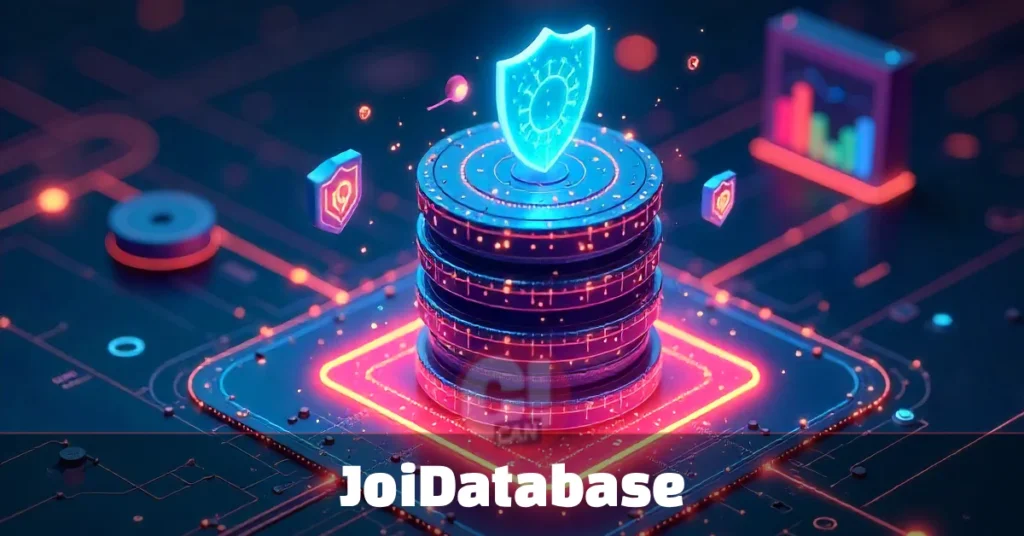JoiDatabase primarily refers to a collection of adult anime content aggregated from multiple sources. The term also appears in cybersecurity discussions related to data breaches. Understanding which context applies helps you navigate online resources safely and make informed decisions about your digital footprint.
If you’ve stumbled across the term “JoiDatabase” online, you’re probably wondering what it means and why it keeps appearing in search results. The term has sparked curiosity across different communities, from cybersecurity circles to anime enthusiasts. This guide breaks down everything you need to understand about JoiDatabase, its various meanings, and what you should know to stay informed and safe online.
What Is JoiDatabase?
The term “JoiDatabase” has two distinct meanings depending on where you encounter it. The primary definition refers to a collection of adult-oriented anime videos gathered from various websites and applications. This isn’t a traditional database system like MySQL or PostgreSQL that developers use to store structured information.
Instead, it functions as a content repository. Users searching for this term are typically looking for aggregated adult anime content rather than technical database solutions. The name itself combines “JOI” (a specific adult content category) with “database” to indicate a centralized collection.
The confusion around this term often stems from its technical-sounding name. Many people expect to find information about database management systems, but instead discover it relates to adult content collections.
Why JoiDatabase Appears in Search Results
Search engines index JoiDatabase content for several reasons. The term has gained traction because it serves as shorthand within specific online communities. When people search for it, they’re usually seeking access to collected content rather than technical documentation.
The term also appears in cybersecurity discussions. Some search results reference data breaches involving platforms named Joi, where user information was exposed. This creates additional confusion when people research the term.
Content creators and websites use “JoiDatabase” as a keyword to attract visitors. This SEO strategy explains why the term appears across various platforms, from forums to dedicated websites. Understanding this helps you filter search results based on your actual intent.
Different Types of Database Systems Explained
To clarify the confusion, let’s look at actual database systems. Traditional databases include relational database management systems (RDBMS) like MySQL, object-relational systems like PostgreSQL, and NoSQL databases like MongoDB. These handle structured and unstructured data for business applications.
Cloud-based databases offer scalability for growing businesses. They allow companies to store information without maintaining physical servers. Hierarchical databases organize data in tree-like structures, useful for specific applications like file systems.
JoiDatabase doesn’t fit into any of these technical categories. It’s a content collection rather than a data management tool. This distinction matters when you’re researching database solutions for legitimate business or development needs.
Privacy and Security Considerations
When exploring any online database or content collection, privacy should be your top concern. Adult content collections can expose users to security risks, including malware, phishing attempts, and data tracking. Websites hosting such collections may lack proper security measures.
Your browsing activity leaves digital traces. Visiting sites that host aggregated content collections can compromise your privacy if they track user behavior or sell data to third parties. Always use VPN services and avoid sharing personal information on unfamiliar platforms.
Data breaches affecting platforms with similar names have exposed millions of user records, including emails, passwords, and personal details. If you’ve created accounts on such platforms, change your passwords immediately and enable two-factor authentication.
How to Protect Your Data Online
Start by using unique, strong passwords for every account. Password managers help you track credentials without reusing the same password across multiple sites. This simple step prevents credential stuffing attacks, where hackers use leaked passwords to access other accounts.
Data breach search engines like BreachDirectory allow you to check if your email appears in known breaches. Regular checks help you stay ahead of potential security issues. Many services offer free monitoring and alerts when your information appears in new leaks.
Enable two-factor authentication wherever possible. This adds a second verification step beyond your password, making unauthorized access significantly harder. Most major platforms now support authentication apps or SMS verification codes.
Content Safety and Legal Aspects
Adult content collections raise legal questions depending on your location. Many jurisdictions have strict regulations about accessing, distributing, or possessing certain types of content. Age verification laws continue to evolve, with some regions requiring robust identity checks.
Copyright infringement represents another concern. Collections that aggregate content from multiple sources often violate intellectual property rights. Accessing such collections may expose you to legal risks, even if you’re not distributing the content yourself.
Malware distribution through adult content sites remains a persistent threat. Hackers exploit user interest to spread viruses, ransomware, and spyware. Always maintain updated antivirus software and avoid downloading files from unverified sources.
Identifying Legitimate Database Resources
If you’re searching for actual database solutions rather than content collections, focus on official documentation and recognized platforms. MySQL, PostgreSQL, MongoDB, and Microsoft SQL Server maintain comprehensive guides for developers and database administrators.
Educational platforms like Coursera, Udemy, and official database vendor sites offer legitimate training resources. These help you understand database design, query optimization, and security best practices without encountering misleading content.
Professional communities on Stack Overflow, Reddit’s database subreddits, and GitHub provide peer support for technical questions. These vetted communities help you distinguish between legitimate resources and content collections masquerading as technical tools.
What to Do If You’ve Been Affected
If you’ve accessed sites related to JoiDatabase and suspect your data was compromised, act quickly. Change passwords for all accounts, starting with email and financial services. Monitor your bank statements and credit reports for suspicious activity.
Consider freezing your credit if you believe personal information was exposed. This prevents identity thieves from opening accounts in your name. Credit bureaus offer temporary freezes that you can lift when needed.
Report suspicious activity to the relevant authorities. Cybercrime units in most countries accept reports about data breaches and online security incidents. Your report helps law enforcement track patterns and potentially shut down malicious operations.
Final Thoughts
JoiDatabase represents a content collection rather than a technical database system. Understanding this distinction helps you navigate search results appropriately and protect your privacy online. Whether you encountered the term through curiosity or research, staying informed about digital security remains crucial.
Focus on protecting your personal information across all online activities. Use strong passwords, enable two-factor authentication, and regularly check for data breaches involving your accounts. These practices keep you safer regardless of which websites you visit.
If you’re researching actual database solutions for business or development work, stick to official documentation and recognized educational resources. This ensures you get accurate information without exposing yourself to security risks associated with misleading content collections.







